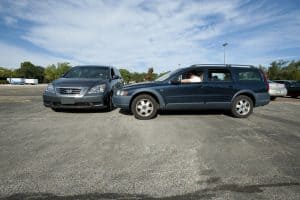November 24, 2009 – The Department of Transportation (DOT) issued a fine against Continental Airlines and ExpressJet Airlines for stranding passengers in Rochester, Minn., for nearly six hours last August. It is the DOT’s first-ever fine for an airport stranding.
The agency “levied a total civil penalty of $100,000” against the carriers for their roles in the Aug. 8 incident, according to a press release. DOT also penalized Mesaba Airlines $75,000 for the way it handled ground operations.
An investigation by the Aviation Enforcement Office found the three carriers violated laws that prohibit unfair and deceptive practices in air transportation, DOT’s statement said.
“I hope that this sends a signal to the rest of the airline industry that we expect airlines to respect the rights of air travelers,” said Transportation Secretary Ray LaHood. “We will also use what we have learned from this investigation to strengthen protections for airline passengers subjected to long tarmac delays.”
“This is a clear wake-up call for the industry,” said George Hobica, creator of Airfarewatchdog.com. “The fine is big enough to send a message, but airlines alone cannot be held responsible for tarmac delays. Airports must develop plans to accommodate passengers stranded on tarmacs, and that includes planes that are rerouted, as was the case in this mishap.”
Hobica said airports need to work with security and airport employees, provide transportation options to get travelers into the terminal and designate emergency gates where passengers can deplane.
“Passengers cannot simply jump out the plane’s emergency slides and walk to an empty terminal,” he said. “So in some respects, the DOT’s action in this case, although well-intentioned, seems a bit unfair. The airline industry is already overtaxed, both literally and figuratively, and this will only add more financial burdens.”
Six hours on the runway
“It was almost a surreal quality that kind of developed during the night,” passenger Link Christin said of the ordeal. “It felt like you were trapped in a cave underground.”
In the end it took 12 hours and a new flight crew for Flight 2816 to complete its Houston-to-Minneapolis journey.
Flight 2816 left Houston on Friday, Aug. 7, at 9:23 p.m., scheduled to arrive in Minneapolis by midnight. Instead, severe weather forced air controllers to divert the plane south to nearby Rochester, where it landed after midnight.
It wasn’t until 6 a.m. that ExpressJet let the passengers off the plane to enter the terminal. And it took another two and a half hours for the passengers to re-board the same plane — still with a full, smelly toilet — to head to Minneapolis. They landed at 9:15 a.m., almost a half-day after leaving Houston.
Kristy Nicholas, a spokeswoman for ExpressJet Airlines, said passengers couldn’t go to the Rochester terminal to wait out the storms because they would have needed to redo their security screening and screeners had gone home.
The airport’s manager, Steven Leqve, said that wasn’t true. Leqve said passengers could simply have waited in a secure area until their plane was cleared to leave.
“This is not an airport issue. This is an airline issue,” he said after the incident.
The Rochester airport took in another diverted flight, a Northwest plane from Phoenix, just before Flight 2816 landed. The more than 50 passengers on that plane were placed on a bus and made it to Minneapolis by 1:30.
Passenger bill of rights
There have been longer waits on airport tarmacs in recent years — passengers on one February 2007 JetBlue flight waited 11 hours at New York’s John F. Kennedy International Airport — but the Flight 2816 delay delivered another black eye to the airline industry and renewed calls for legislation aimed at preventing such nightmare scenarios.
Following the Aug. 8 incident, Sen. Byron Dorgan, D-N.D., chairman of the Senate Commerce Committee’s aviation operations subcommittee, said it underscored the need to pass legislation setting a three-hour limit for an airplane to sit on the tarmac without passengers being allowed off. Legislation to do that in a so-called passenger bill of rights recently passed the Commerce Committee and awaits action in the full Senate.
“There needs to be some common sense used in these cases and it seems to me these folks have a right to complain very seriously about what happened,” Dorgan said.
The Air Transport Association, which represents a group of airlines that includes Continental, has resisted the legislation in the past. Spokeswoman Elizabeth Merida said the group continues to believe the legislation would impose an unfair guideline on the industry and “will ultimately end up inconveniencing passengers rather than helping them.”
In November 2008, DOT proposed regulations to bolster rights and protections for travelers. The agency is expected to rule on the protections by the end of the year.







